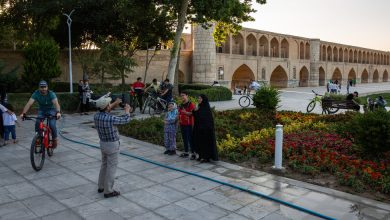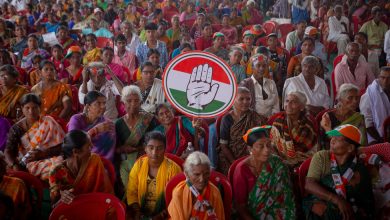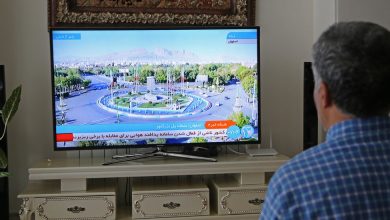Rules Aren’t Just Rules

From “The Daily” newsletter: One big idea on the news, from the team that brings you “The Daily” podcast. You can sign up for the newsletter here.
It was a curt condemnation: “Rules are rules,” Prime Minister Scott Morrison said after his government revoked Novak Djokovic’s visa ahead of the Australian Open.
But Australia’s pandemic rules aren’t just rules. They’re a legal regime, constructed in crisis, that express something deeper about the national character — what is valued, what is policed and what is worthy of contempt.
In Australia, disdain for the foreign, the unfamiliar, the successful and the expansive has long informed national policy. The country’s pandemic policing, some of the harshest in the world, is an outgrowth of its myopia and insularity, according to Damien Cave, the Australia bureau chief for The New York Times.
Covid-19 served to solidify anti-immigrant sentiment — and one of the most severe border-policing systems of any developed country. While the regulations of a regional police state might feel as parochial as the country’s policies, the influence of these decisions ripple far beyond Australia’s borders. Here’s how Australia influences global immigration policy:
A history of unsafe harbors
The modern state of Australia was born just before the world’s oldest person, populated with seafaring immigrants who enacted the systematic extermination of the country’s Indigenous population. But over the course of Australia’s relatively short national history, the government has insisted on policing the same migration that was essential to its founding.
For most of the last century, the so-called White Australia policy restricted nonwhite immigration — and the sentiment behind that policy persists in today’s government. In the last decade, Australia has insisted on a zero-tolerance approach to asylum seekers, spending $15 million on advertising campaigns with slogans like “No way: You will not make Australia home” in thick red text over photos of dark waves.
Asylum seekers are often sent far from Australia’s borders, detained indefinitely in Papua New Guinea or Nauru. Some self-immolate. Those who do make it to the mainland are detained indefinitely in Australian hotels, often without access to sunlight or fresh air. Some attempt suicide. Australians are largely comfortable with this immigration system — with many wanting it to be even stricter.
Pandemic-era policing
Before the pandemic, a majority of Australian poll respondents believed that immigration was a burden on social welfare, and half wanted to see immigration levels reduced. The pandemic only intensified those views.
In 2020, Australia locked its borders and the country’s population shrank for the first time in 100 years. As Australia considered reopening its borders, 58 percent of voters said they supported restarting migration at a lower level than before the coronavirus. The pandemic also shifted the targets of border policing.
Instead of focusing on deterring immigrants, the government began to criminalize the moment of Australian citizens, often at the expense of personal freedom. Early in the pandemic, Australians were prohibited from leaving the country without special government exemption or vaccination, restrictions that 81 percent of Australians supported.
And last year, some Australians were banned from returning home — and citizens attempting to return from India faced $66,600 in fines or five years in prison. Those who were allowed into the country faced expensive, arduous quarantines in remote facilities.
Trickle-down isolationism
Australia’s immigration policies have been a source of inspiration for governments around the world, influencing the closing of global borders. Britain reportedly investigated holding their own asylum seekers in offshore detention centers, and former President Donald Trump, a close friend of Prime Minister Morrison’s, lauded Australia’s approach to immigration before declaring a state of emergency to build a border wall.
A 2016 report revealed that Australia’s policies “consciously cultivated or indirectly fostered negative developments in lower-income states” like Indonesia, Kenya and Jordan, which collectively house over a million refugees.
Australia’s history of mass visa cancellation, a practice made public by the Djokovic affair, could have ripple effects, too. Britain recently introduced a controversial nationality and borders bill, which will no longer require officials to notify people before their citizenship is taken away. The British government has also recently expanded its power to impose visa penalties on countries that refuse to comply with its deportation policies.
These are all rules, as Mr. Morrison said. But they’re rules that also inspire other rules — ones that influence and control how countries, and their citizens, relate.
These rules govern a world in which tennis stars can become the source of collective national outrage, asylum seekers are detained offshore and movement is questioned not just between countries but within them.
From The Daily team: ‘How did we let people die this way?’
This week, we are starting a new series in which we ask editors and producers on The Daily to take us behind the scenes of their favorite episode of the show that they’ve worked on.
First up in this journey into the Daily archive is Anita Badejo, an editor based in London. She first joined the team in February 2021 from Pop-Up Magazine, where she served as the executive editor.
Anita’s pick is “How Did We Let People Die This Way,” an episode that first aired in November 2021 (you can listen to it here). We sat down with her to discuss the episode and the process of putting it together.
Tell us a bit about “How Did We Let People Die This Way”?
It was an episode that we did with Nick Casey, the Madrid bureau chief at The Times. It profiled a man, Martín Zamora, who’s carved out this very unique line of work for himself, collecting the bodies of people who have died at sea trying to migrate to Spain. He identifies who they are and then gets their bodies back to their families, mainly in North and West Africa.
The Novak Djokovic Standoff With Australia
A vaccine exemption question. Novak Djokovic was refused entry to Australia over questions about a Covid vaccine exemption. After he challenged the ruling in court, a judge allowed him to enter. Authorities then revoked his visa again, and he lost his final bid to stay when a three-judge panel upheld the decision.
How it started. The standoff began when Djokovic received an exemption that would allow him to defend his Australian Open title. Upon arrival, federal officials said he did not meet the requirements for entry because he was unvaccinated, and canceled his visa.
How it ended. For more than a week, the world gawked at a conflict centered on the controversial tennis star, filled with legal minutiae and dramatic ups and downs. Ultimately, Djokovic lost to a government with powerful laws that was determined to make an example out of him.
The bigger picture. Amid a difficult time in Australia’s fight against Covid, the standoff highlighted the growing public outcry against high-profile vaccine skeptics like Djokovic when they want to play by different rules than everyone else.
What happens next. It is unclear what will happen at the next major tournaments on the men’s tour, but the standoff in Australia presages some of the headwinds Djokovic could face if he attempts to travel the world without being vaccinated for Covid-19.
How did the episode come to be?
The episode was pitched by Rachelle Bonja, who’s one of our amazing producers who works a lot on international stories. [Read Rachelle’s producer profile here.] Rachelle spotted the story Nick wrote about Martín for the paper and brought it up in one of our Daily morning meetings as a potential option for the show.
Is there a moment from working on the episode that sticks out in your mind?
Nick had already spent a lot of time with Martín over the course of multiple interviews, which he had recorded but, of course, they were in Spanish. We took the step of having all of the tape professionally translated to make sure we had a really good grasp of the content of the interviews.
With the translations, I was able to sit down and read about this man, his experiences and the impact that doing this work has had on him personally. What I remember the most was when I read the transcript of what became the end of our episode — this moment when Martín and Nick are driving on the way to his funeral home, and Martín describes how a lot of the families that he works with will send him videos of their loved ones. Often they’re really full of life and hope and are so optimistic. Martín described in the interview that he sometimes is watching these videos right as the body of one of those people is laying in front of him on an embalming table. I remember reading that in the transcript and being really overwhelmed by what that must feel like.
Is this episode representative of the kinds of episodes you like working on?
I like to tell stories that are really human and grounded in a human experience. I’m always really excited when I get to work on our episodes that have a source and a character at the center of them who can really bring an issue to life and help people understand the impact of something that can seem really big and intractable, like global migration and the refugee crisis. I’m also drawn to stories that take an issue or problem in the world and present you with a story that you’re always going to associate with that issue.
When I read a headline about migration or a group of migrants or refugees who have died at sea — which I do a lot because I’m based in the U.K. and we hear a lot about people trying to cross the English Channel — I can’t not think about Nick’s story. I think about who is on the other side having to interact with that person’s body and that family, what kind of toll this is taking on them. I’ve heard that from a lot of people who listened to this episode. It cracked open a facet of this issue that I had never even considered before. I’m not going to forget that.
On The Daily this week
Tuesday: An investigation into the civilian casualties of America’s air wars and why the death tolls are so high.
Wednesday: Inside President Biden and the Democrats’ last-gasp push to pass bills in the Senate that would protect voting rights.
Thursday: What is the metaverse, and why are tech companies like Microsoft investing in this new digital world?
Friday: What the deportation of the tennis star Novak Djokovic revealed about Australia’s border policies.
That’s it for the Daily newsletter. See you next week.
Have thoughts about the show? Tell us what you think at [email protected].
Were you forwarded this newsletter? Subscribe here to get it delivered to your inbox.
Love podcasts? Join The New York Times Podcast Club on Facebook.



